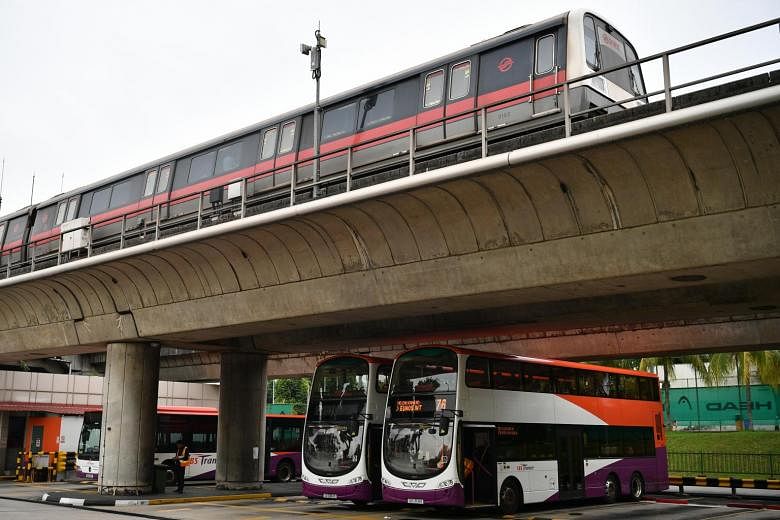SINGAPORE - By 2040, peak-hour commutes on public transport should take no more than 45 minutes, the Land Transport Master Plan Advisory Panel has proposed, which will help the average peak-hour commuter save about 15 minutes a day.
This is one of the recommendations that the panel chaired by Senior Minister of State for Transport Janil Puthucheary submitted to the Government on Friday (Feb 15), to make public transport here faster and better connected as well as safer and more inclusive.
The recommendations for the Land Transport Master Plan 2040 cover three broad areas:
First, that travelling by public transport - as well as active mobility modes such as cycling and point-to-point modes such as taxis - are so convenient that 90 per cent of all peak-hour journeys are made by these options.
Investments in the public transport and active mobility network should allow all journeys to the nearest neighbourhood centre to take no more than 20 minutes, and 90 per cent of peak-hour journeys to take no more than 45 minutes, said the panel.
The second area focuses on how the transport system should be more inclusive to better meet the needs of seniors, those with disabilities and families with young children.
This must be a collective effort between commuters, transport operators and the Government, said the panel, adding that it means more barrier-free infrastructure as well as ensuring transport workers are equipped to meet the needs of all commuters.
The third area is to make travelling here safer and healthier. This includes the provision of more spaces for walking, cycling and public transport as well as making journeys here safer, with fewer transport-related deaths and injuries.
"The panel also urges the Government and industry players to switch to cleaner energy sources for all shared fleet vehicles, starting with public buses," it said in a statement, adding that this would help reduce noise and air pollution as part of efforts to improve environmental sustainability and public health.
Dr Janil said the land transport system here must transform to support the Republic's growth as well as the evolving needs of commuters, while also taking into account technological disruption, demographic changes and land constraints.
The 15-member panel had received more than 7,400 responses from commuters, transport workers, industry representatives and academics over the past six months.
"The vision, targets and strategies we recommend were developed with Singaporeans' feedback, and together, I am confident we will build a better land transport system for the future," Dr Janil added.


